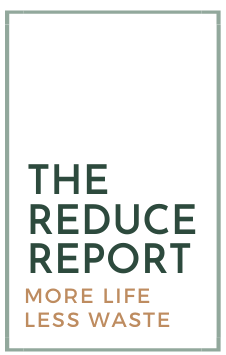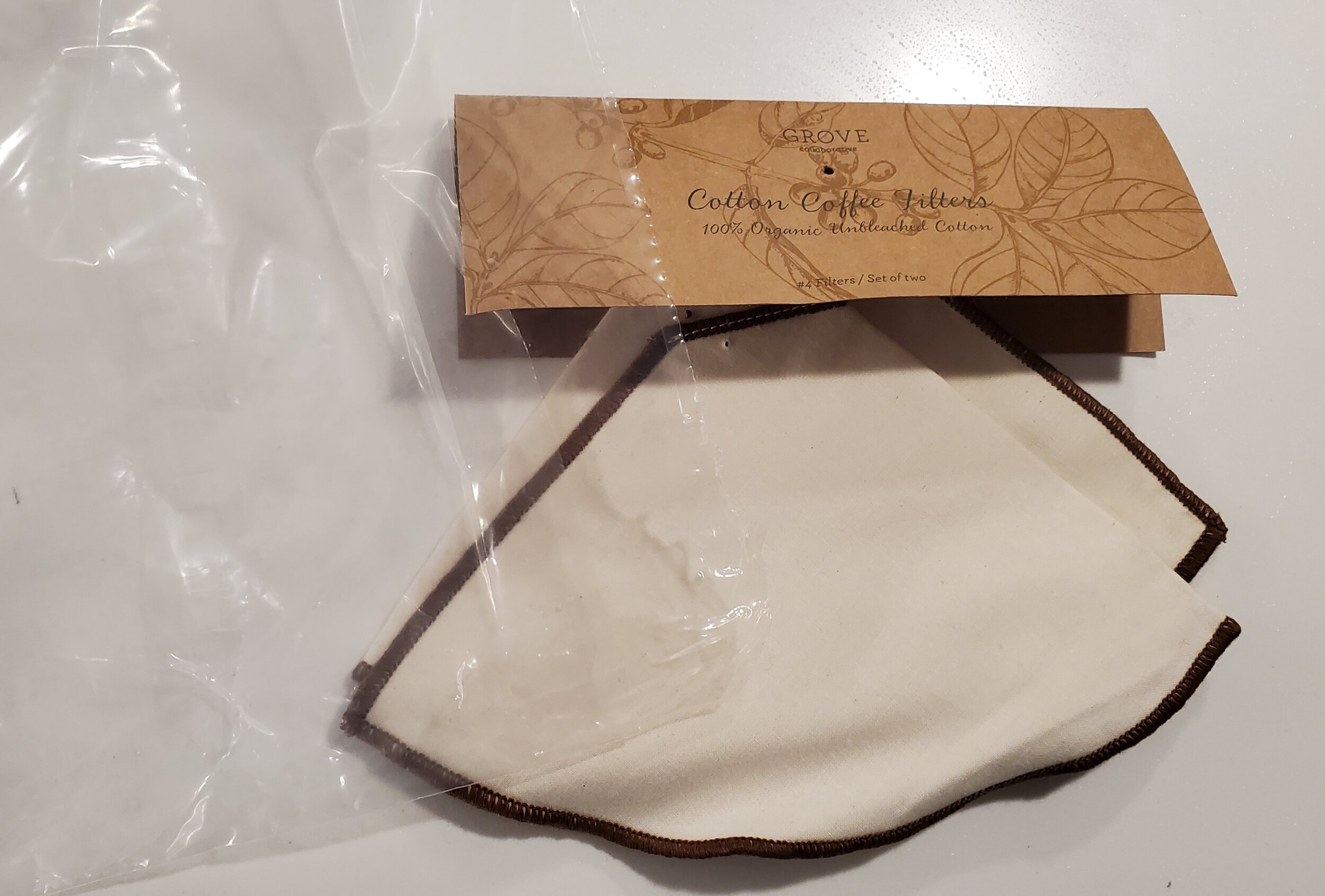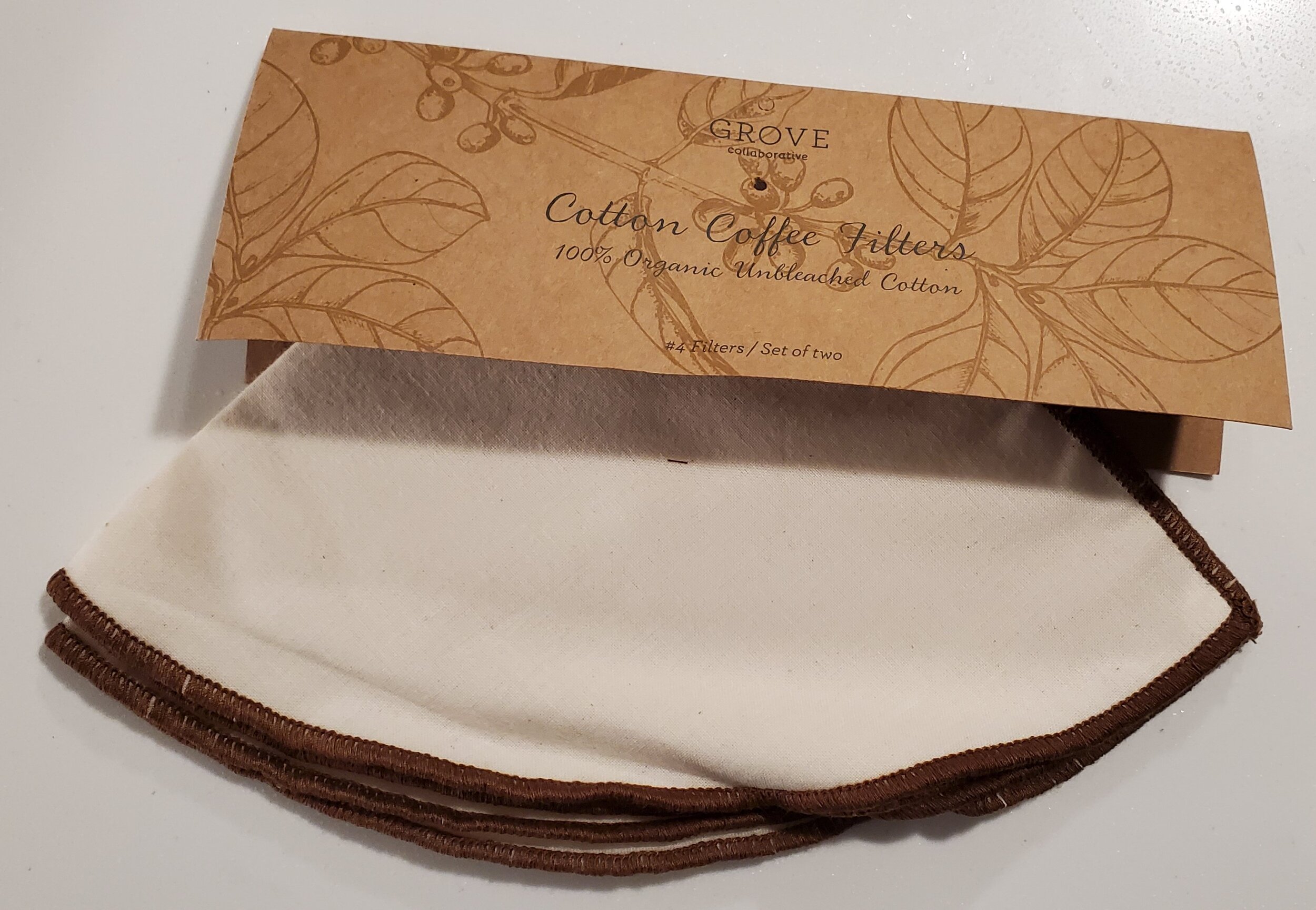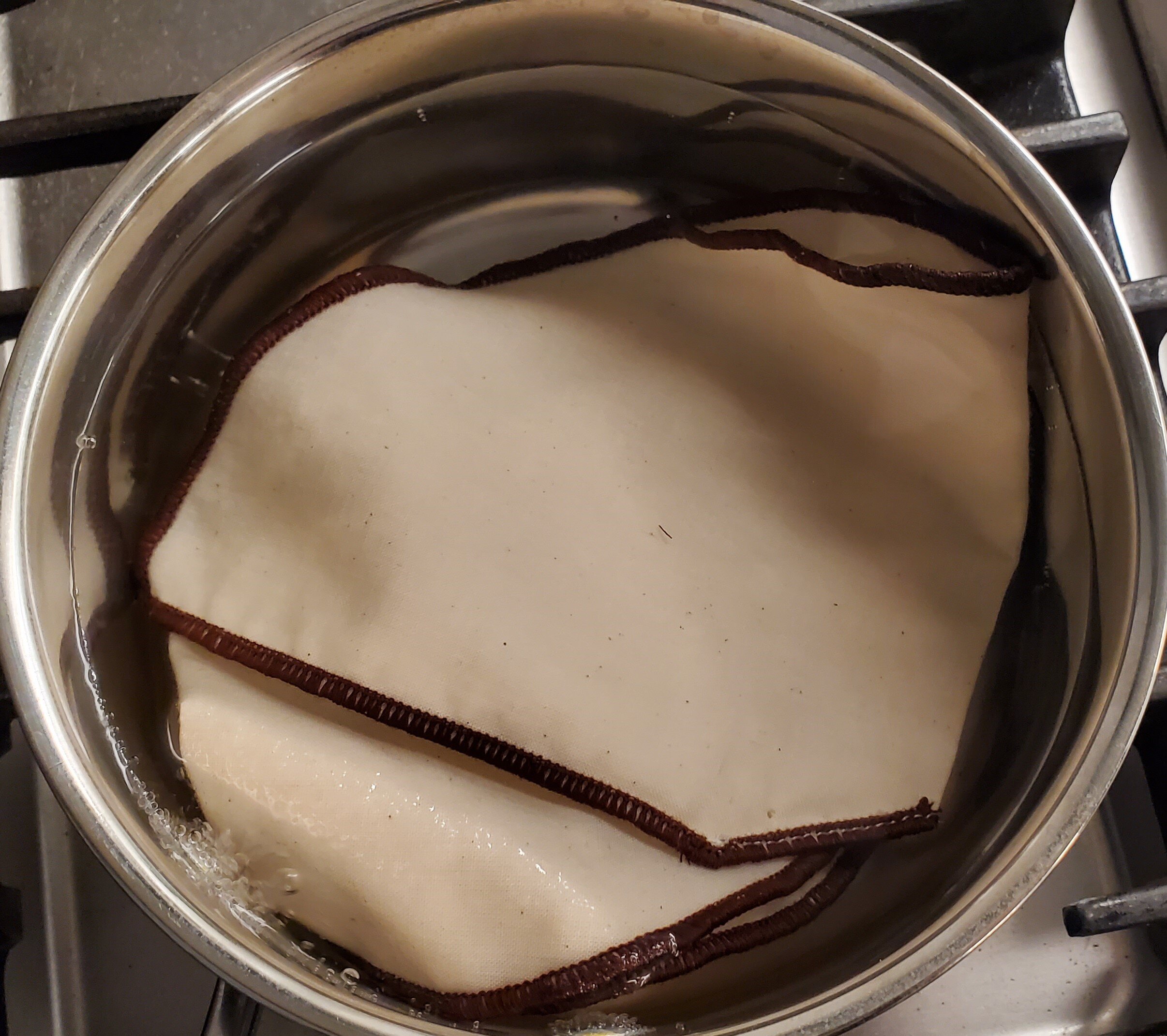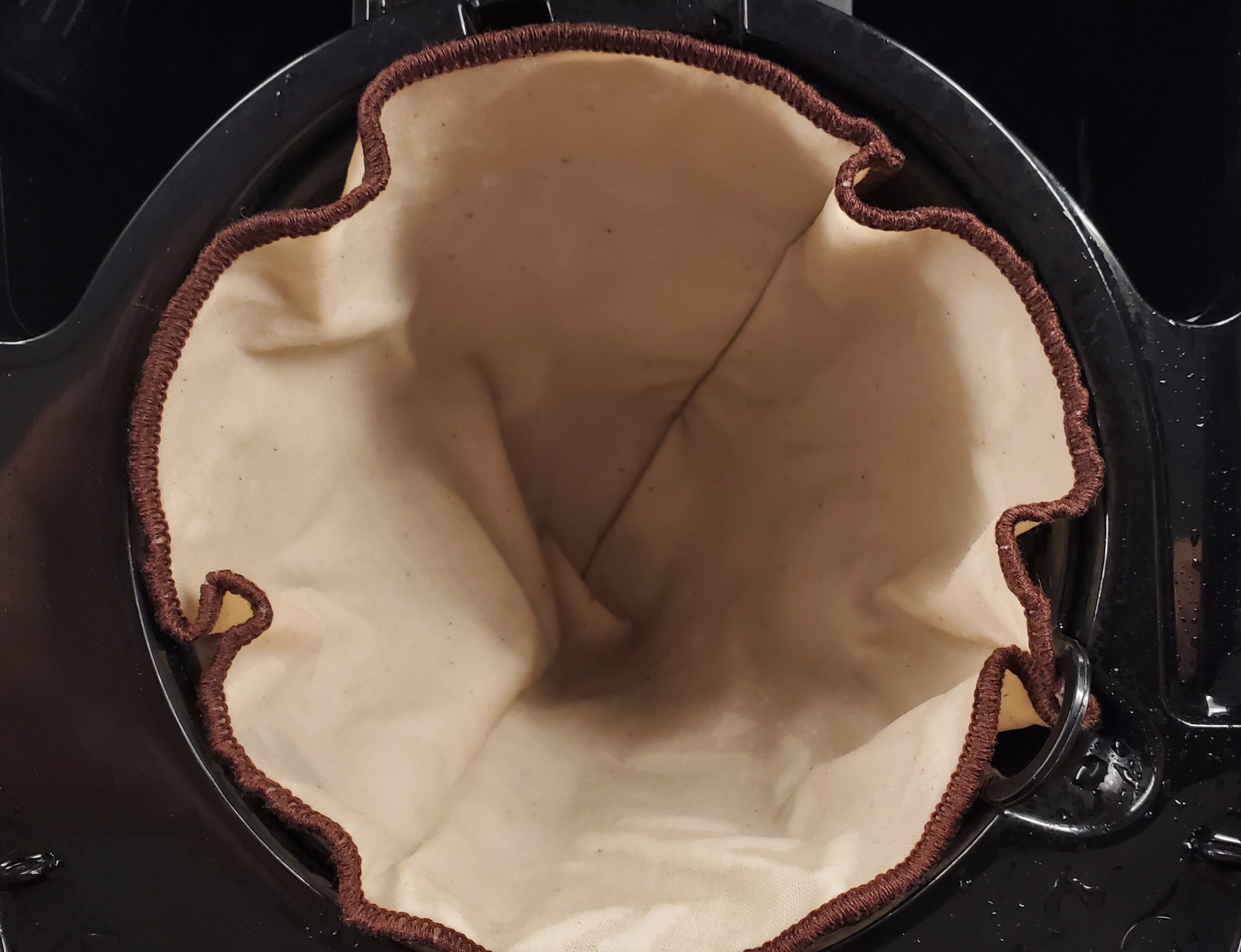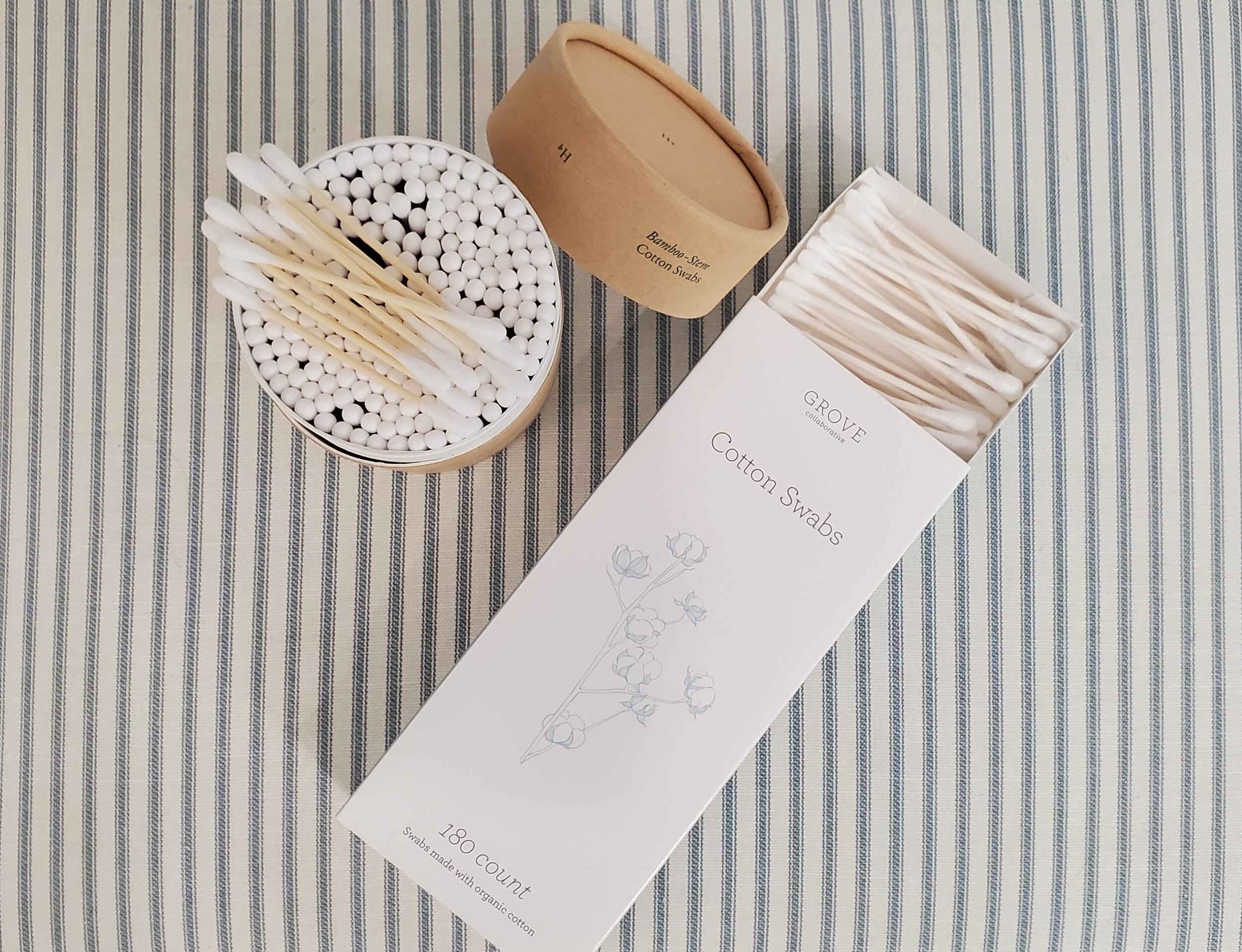Grove Collaborative Coffee Filters Review 2020 | Reusable, Zero Waste Cotton Coffee Filters
The Top Line:
Grove Collaborative Organic Cotton Coffee filters: MIXED BUY [upgrade!] 😍
For #4 user and/or no access to compost and/or space savers: BUY. It is the more affordable option. Also, even though you may not have the ideal, best case scenario reduction in impact, removing items from the landfill is a good start.
For our basket filter users: basket filters are a touch cheaper. For our composters, given that you may have to use an organic cotton filter >465x, they may not make sense unless we know that they can last you a very, very long time.
Originally Published 6 Jun 2020. One Year Update: We are STILL using these Cotton coffee filters daily. We have been brewing a 10-cup pot (yes) every day. While the coffee does darken the cloth, we wash ours periodically to get the oil out. The seams are still in perfect order! We have used them each ~180 times so far.
Check out our Grove Collaborative Roundup here.
The Breakdown:
Cost & Products: $6.95 for 2 reusable filters
How ‘Clean’ Is This? Pretty clean - made of 100% organic cotton
Packaging: Unfortunately, like many items still, the products are contained within a plastic bag.
Since they have to be boiled before use (we get to that later), why not leave them unpackaged with the brown tag on top?
Purchasing & Shipping: We have now ordered twice on the mobile site. The mobile site is so finicky that we ended up not ordering everything we wanted. The desktop site is a little better, but still not intuitive to navigate, since they have duplicate products listed.
PSA: The subscriptions are applied automatically. There is a ton of flexibility - but it’s on you to remember. If you try to order before your next due shipment, all of the items are pre-loaded into your cart. We like the thought behind it, but would prefer opt-in versus opt-out.
Coupons: None that we know of. Orders have minimum spend amounts for perks, which include additional products and free shipping. A lot of free gifts with purchases: A bonus that may make up for being a bit more pricey than Blueland.
Good to Know: Grove Collaborative is a B-corporation. Normal corporations have a goal to make more money for their owners. B-Corporations do that too, but they also set specific, social and ethical goals such as governance, environment, and workers. Read about Grove Collaborative’s goals here.
The Impact
This one is actually quite involved. Note: putting compostable items into the garbage does literally nothing for the environment/waste.
We try to break down some of the data here:
Depending on how you measure it, you’d need to use an organic cotton item anywhere from 32 to 465 times to have the same net environmental effect as paper items.
Around 32x accounts for effects of climate change whereas ~465x accounts for the whole life of production and impact on the earth (including use of freshwater) of the cotton item.
Note that 465x is a worst case scenario based on a Danish report, which means you may be able to use an item fewer than 465 times to achieve a net benefit by switching to organic cotton from paper.
Supposedly, you can use Grove Collaborative’s Cotton Coffee Filters for 9 months each, or ~270 pots of coffee.
If you are able to compost paper, the cotton filters may not make environmental sense if the use is really limited to 270x.
If you are not able to compost, we think the switch, from an environmental point, absolutely makes sense.
So far, we have used the cotton basket over paper for about 20 days in a row (sometimes twice a day - hello WFH) for a full pot of coffee and not noticed any degradation. We will report back after several more months of use to update.
The Experience
Context: Fresh brewed coffee at home every day, sometimes twice a day (WFH).
If your coffee machine uses a filter, a cotton filter may be a way to more environmentally friendly coffee.
Step one: Need to boil the cotton filters. Kind of annoying but it makes sense from a hygiene perspective. Since it was a one-time thing, it was fine.
After brewing, we dump the grounds once they’ve cooled and give the filter a little rinse before it goes back in the machine.
Some people let their filter dry completely between uses -- switching between to the two filters available.
We don’t care that the filter is still damp -- it’s going to just get wet again anyway.
Coffee tastes great!
Filters fit great!
It’s a little messier to dump coffee grinds and then rinse - but since we love the smell of coffee, we don’t really mind.
Love our switch to cotton filter: it means I don’t have to rely on remembering/stocking filters in the house.
The Cost
Moment of truth for the value. We looked at both #4 and basket filters, across brands like Miletta, Public Goods, If You Care, and the generic grocery store brand. We are going to assume you brew a pot at least once a day, everyday (WFH!).
Money Report: Hands down the cheapest option if you use #4 filters.Not super compelling from a cost perspective if you use basket filters, which tend to be cheaper.
The Good:
✔ Don’t have to buy filters for a long time
✔ Save cupboard space
✔ One of the cheapest options if you use #4
✔ A great option if composting is not accessible to you
✔ After boiling before using the first time, pretty straightforward to use: dump grounds and rinse
✔ 270 uses out of 1 filter: will keep you posted on how long ours last
The Bad:
✗ Not super compelling from a price point if you use basket filters
✗ If you compost the paper filters, using this organic cotton may actually be a worse net effect on the environment
Our Recommendation:
Grove Collaborative Organic Cotton Coffee Filters are a BUY if composting paper filters is not accessible to you or if you want to limit space in your kitchen and go to the store less often.
For you basket filter users and/or composters: since organic cotton looks like it may take more resources to manufacture, we will hold off until we know that you can potentially use one filter over 465x before recommending it to you.
We're on a mission to reduce our personal carbon footprint with small, hopefully easy, changes in our home to fight against climate change. This means we're looking for products that may be all natural, ideally zero waste, reusable or compostable -- while still being affordable!

